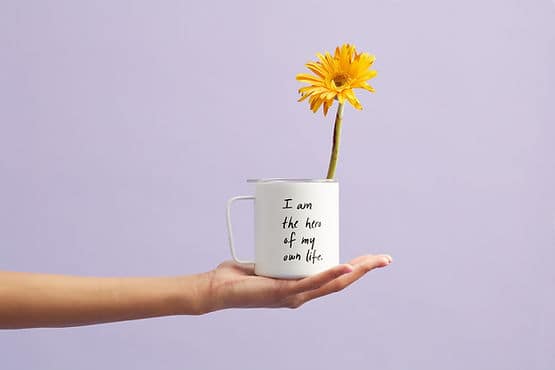4 Reasons You’re Stuck & How to Get Moving
Looking back at the course of my life, I’ve not done half bad at making decisions. My mom once said to me, “While you’ve made mistakes, Kor, you always land on your feet.” I think she said that before I went through a terrible bike accident in 2019, but I digress! 😉 I very much recognize that there has been a lot of luck involved. At the same time, I’ve done my best to be evaluative, calculating, and skilled with weighing the probability of success (the variables being different, for every choice), but my best has looked significantly different with each situation, under the circumstances I was in.
Sometimes, a sense of stuckness led me down a certain path, and over the years, I’ve learned what contributes to stuckness, as well as how to get out from underneath it. Let’s just acknowledge at the outset, however, that stuckness is not inherently bad. While uncomfortable, it can be a signal to pause and pay attention in a new way. Often though, stuckness can lead us into impulsive choices, either the thing that is most readily available, easy, and convenient; staying put when what we may need to do is quit; or giving up altogether when it’s a shift in course or perspective that would be ideal.
Let’s look at a few of the top reasons you may be feeling stuck:
4 Reasons You’re Stuck
- You don’t see that you have any choices
- You don’t like the choices in front of you (you’re between a rock and a hard place)
- You’re not connecting with your values, you don’t know what they are, or you see the potential consequences of your choices causing friction between values
- You’re deliberating about something that doesn’t need deliberation
You Don’t See That You Have Choices

There’s a word in social science literature for “sense of choice,” and it’s autonomy. Autonomy is one of our basic psychological needs as described by self-determination theory, and it’s one of the three most important nutrients for our wellbeing and vitality. Without choice, we can easily fall down the hole of hopelessness. Many variables coalesce to support a strong sense of autonomy, but one of the most important is a belief in one’s self to influence the situation.
Unfortunately, many of us grew up in situations where a lot of decisions were made for us without our input or consent. We weren’t raised in environments whereby we could make mistakes but know that our worth was not attached to those failures or errors. Simultaneously, we may have learned that we are the way we are. We’re born a certain way, and we can’t change. Otherwise known as a fixed mindset, we believe that there’s no point in making an effort. Why make a choice at all, if you believe that it won’t make a difference?
Another variable that contributes to a lack of clarity about choices, is comparison. Social media has us devouring a steady stream of influencer jargon or images that can easily create a sense of scarcity or lack. How often do you put down your phone after scrolling through your feeds and actually feel good about yourself? Comparison can move us away from valuing who we already are and invites us to pick up goals or make choices that aren’t really ours, genuinely and authentically.
Those lives are not our lives! The contexts we are living within are wholly different from theirs. No wonder we often end up feeling choiceless.
Many of us also tend to look at the world in black and white, minimizing our ability to see the choices in front of us. We are locked in our familiar patterns of thinking, and need someone to show us the gray areas. If you can relate to blaming others a lot for your circumstances versus inquiring about your personal responsibility, you are operating with what’s called an external locus of control. Individuals with an external locus of control often find themselves arguing with reality, and as Byron Katie has been quoted as saying, “When you argue with reality, you lose, but only 100% of the time.”
Once we do achieve some clarity around what our choices are, stuckness may arise from the aversion we may feel toward those choices!
You Don’t Like Your Choices

When I was considering resigning from my long-time salaried position at a global nutrition coaching company, that choice felt necessary, but I also didn’t like it. Making that choice meant many consequences that I didn’t want to face– hard conversations, a significant reduction in income, legal and ethical considerations, negotiations. And then all the decisions I’d have to make about what to do next. When I projected into the future, one year from that date, however, I could say with 100% certainty that staying would mean I was at least 10x as unhappy as I already was, and that unhappiness was affecting my most important relationships, my mental, emotional, and physical health, etc. The probability was favorable that no matter the additional decisions, however, I would be happier doing something different.
The uncertainty of the future, if I left, could have kept me stuck in the same position. The pain of the present though, with no accompanying evidence for resolution (or improvement) in the future, supported my choice to leave. I had to recognize the aversion I was feeling toward both of the choices in order to move away from it though. And that was necessary for accepting that no choice was necessarily going to be fun. I didn’t have to like either choice. Both would be uncomfortable. But long-term, one was going to be incredibly harmful.
Being on the outside of that choice now, I can tell you that the immediate consequences of quitting did not last long. Were they unpleasant? Absolutely. However, what quitting allowed me to do was make a choice that over the long-haul looked to be more worthwhile. I was guided also by the question of whether I was wasting my time staying put, and when I reflected, the result was much worse than a waste of time. Moral and ethical dilemmas due to compromised values were revealed.
You’re Not Connecting with Your Values
Values are the mission statements of our lives. They’re the North Stars, the lighthouses, the compasses that guide who and how we are. Without them, it’s easy to feel aimless, wandering around with a sense of moral malaise. Values give us a foundation from which to act, think, and feel, and when we may feel lost or stuck, connecting with them can shift us into possibility, potential, and purpose.
When I was considering whether to stay or go, it was actually my value of curiosity that led me to begin questioning in the first place. Curiosity guided me into new research and literature revealing what had previously been unknown to me.
Mindfulness is also a key value of mine, and as I connected more fully with my meditation practice, I could no longer ignore the sense of unease I was experiencing. Authenticity and a love of learning led me to pursue new certifications and experiences, and the information I acquired was a mismatch for the work I was required to engage in.
On a personal level, I was exploring shifts in my relationship with my body and food, which was very much connected to my intimate relationship with my now husband, as well as with my ability to collaborate with my clients, and I was repeatedly knocked down with dissonance. “What am I doing?” was a common question I would ask myself. I was working against my values, and the consequences were becoming more and more real.

Similarly, when I was questioning whether to stay or go in a relationship, it was my values that ultimately guided me toward both staying and going. I played out the future with this person until I could no longer see a positive outcome. Some may say I stayed too long, and perhaps it’s true, but with each decision we make, we might become better at knowing when to quit and when to grit. Our values can be helpful in doing so.
One of the most difficult things about choices is not knowing whether whatever we decide is “going to work.” Choices are a game of probabilities. We see what happens, and then we make more choices.
You’re Deliberating About Something that Doesn’t Need Deliberation
I’m likely the least empathic person when it comes to this aspect of stuckness. For a good portion of us, there are duties, responsibilities, or tasks that we just don’t want to or feel like doing. For example, dishes, taking a shower, drying my hair, making dinner, and washing my face are probably in my top five. But I don’t deliberate about doing them. I hate having dishes pile up more than I hate doing them. I hate feeling sticky more than I hate feeling cold when I undress to shower. I hate having skin that is breaking out all the time more than washing my face. I hate not eating well more than I hate making dinner. You get my point. Deliberation has taught me these things, so I don’t deliberate anymore. It’s a pointless time and energy suck!
Learning to deliberate about the things that really matter is an important skill to develop if we want to live from a place of agency and autonomy vs stuckness, helplessness, and hopelessness. I listened to a podcast recently and learned about a guy who decided, with his wife, to outsource the bathing of their children. For me, and perhaps for you, that’s not something I’d deliberate about. But, they weighed their values, and time together and their kids having fun during bath time (which neither of them could facilitate), were what mattered the most!
What are you deliberating about that you just need to do, could change your perspective around it (i.e., I get to do this, I want to do this, I would like to do this differently this time), or let go of altogether so you’re not wasting your precious energy on it?
If you’re interested in getting support through some tough decisions, ditching deliberation, gaining new perspectives, and learning how to connect with your values, you know where to find me. Please reach out to [email protected]






